Exploring foreign films opened my world to different perspectives, cultural nuances, and new, exciting ways of storytelling that make any journey toward the world of cinephiles more affluent. From Amélie's poetic despair to Oldboy's stark intensity, these movies remain unforgettable cinematic experiences within and across genres and geographies. Each of the films here reflects what was so artfully produced within that country while also being a test of complex narratives and themes.
1) Seven Samurai
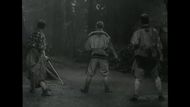
Japan Akira Kurosawa's Seven Samurai is one of the landmark films, not only in the story itself but also in terms of technical values. Set in 16th-century Japan, this film is about a village that hires seven samurai to defend them against bandits. It inspired many films, including The Magnificent Seven and Star Wars. Kurosawa's dynamic use of weather, deep character development, and meticulously staged battle scenes revolutionized cinema.
2) Metropolis

Fritz Lang's Metropolis is one of the most revolutionary science fiction films ever made. Set in a dystopian future where the elite live above in opulence while the workers toil starkly underneath, this visually groundbreaking film introduces sets of monumental proportions, cutting-edge special effects, and thematic explorations of industrialization, and class divides.
3) Harakiri

Masaki Kobayashi's Harakiri is a powerful, tragic story about honor and revenge, challenging the old-time bushido code. An alienated samurai in feudal Japan wants to die nobly by committing self-immolation in a nobleman's house but brings out the hypocrisy and corruption that lie behind the code of the samurai. This deconstruction of loyalty and nobility of sacrifice stretches the samurai genre into a film that interlaces psychological tension with political commentary.
4) Oldboy

The visceral vengeance of Park Chan-wook's Oldboy delves deep into the dimensions of guilt, fate, and retribution. A man is mysteriously imprisoned for 15 years before he's finally freed and has only five days to find his kidnapper. It is a plot full of convoluted twists, jarring shocks, and gruesome knock-out action, which has earned a loyal cult following. Oldboy is a film of vicious circles of violence, self-destruction, and redemption.
5) Pan's Labyrinth

Guillermo del Toro's Pan's Labyrinth is an engrossing combination of fantasy and historical drama that unfolds during post-Civil War Spain. It follows a young girl running away to a mythical world where the trials she had in that place are nothing but reflections of reality about life under a fascist regime. It brings fairy tale elements beautifully intertwined with stark political allegory and captures the innocence of childhood against the backdrop of war.
6) Parasite

A masterclass in social commentary and dark comedy thriller with hints of drama, Parasite is a Bong Joon-ho directorial. It is about an underprivileged family that invades a highly privileged household and causes things to take a dark turn for the worse. Parasite's sharp class inequality critique is matched with outstanding performances and good direction. It is now the first non-English language film to win Best Picture at the Academy Awards, and the film can be viewed as an out-and-out success worldwide.
7) City of God

City of God, directed by Fernando Meirelles, is a film set in Rio de Janeiro's violent favelas. Audiences can be absorbed in the vibrant and raw view of life inside gang culture. The structure of the movie and the excellent cinematography can encompass the chaos of youth brought into a cycle of crime, poverty, and violence. Authenticity in actual life-inspired performances, especially from young actors, gives weight to the story.
8) Bicycle Thieves

Directed by Vittorio De Sica, Bicycle Thieves is the iconic production of Italian neorealism. This film focuses on a poor father who desperately searches for his stolen bicycle, representing his sole means of survival in this society. Shot entirely on location in post-war Rome, the film captures ruthlessness in poverty and sensitivity to human dignity. Minimalist style and amateur actors contribute to a movie's emotional reality.
9) Rashomon
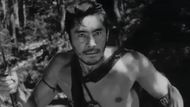
Akira Kurosawa's Rashomon shows how truth and memory are subjective. The narrative features several witnesses narrating the same crime in different words, raising questions about human perspectives and nature. Non-linear storytelling and contrasts of perspectives were innovative for the time it came out. Rashomon brought to the fore the aspect of moral ambiguity that lies within human behavior.
10) The World of Apu
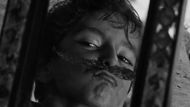
The last part of a trilogy by Satyajit Ray is about Apu, The World of Apu. He portrays how the titled character grapples with adulthood, love, and the loss of the same. His poignancy in storytelling and his realistic approach to emotions make him an admirer, mainly when depicting the human side. This film talks about the growth of individual characters and complicated relationships in a profound commentary on the human condition.
11) Persona

Ingmar Bergman's haunting psychological drama, Persona, explores themes of identity, isolation, and human connections. The movie is set with an actress who has become mute and a nurse taking care of her. Bergman masterfully uses close-ups, stark lighting, and symbolic imagery to create an unsettling atmosphere, almost as if one is asked to interpret and introspect about it. Persona mediates the fluidity of identity and the depths of the human psyche, cementing it as a cornerstone of psychological cinema.
12) Cinema Paradiso

Giuseppe Tornatore's Cinema Paradiso is a heartfelt tribute to the magic of movies. The film chronicles the life of Salvatore, a successful director who looks back on his childhood and his friendship with a local cinema projectionist. This is an intimate emotional probing into the depth at which cinema reaches and molds life. It touches a cinematically inclined heart with personal but universal films and serves as a poignant reminder of the power of storytelling.
13) Amélie

Jean-Pierre Jeunet's Amelie speaks to the imagination, full of quirky characters and beautiful setting designs. It is famous as a film full of color and imagination. This picture celebrates kindness and the ordinary magic of life. It's an irresistible romantic fantasy movie that features the beguiling Audrey Tautou in the role and treats love and destiny lightly.
14) Spirited Away

Hayao Miyazaki's work is the animated film to be ranked here. The animated movie takes viewers into an imaginative world as a young girl must work in a bathhouse for spirits to save her parents. A lovely mashing up of myth, folklore, and all that is human, crucial themes of growth and responsibility—it's fantastic; the visuals and the building of the world—I mean, everything here has to be one of the greatest animated films of all time. It even got them an Academy Award for Best Animated Feature, and it was Spirited Away, which made the film a relevant aspect of global cinema: full of aesthetic and thematic intensity.
15) Léon: The Professional

Luc Besson's Léon: The Professional is the story of an assassin who becomes an unlikely adoptive father to a girl in search of revenge on those who killed her family. Combining action, crime, and emotional depth into something with love, loss, and morality, the work will surely stand out: Jean Reno's stone-facelike demeanor when playing the hitman and Natalie Portman's breakout performance. This sets the film to stand up to time as visual appeal, memorable performances, and a grand narrative will prove influential in action films through the ages.
16) Memories of Murder
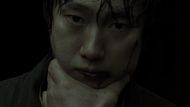
Memories of Murder is a darkly thrilling and complex crime thriller by Bong Joon-ho, based on the events of South Korea's first serial killer. The film is set in the 1980s and focuses on two detectives who struggle to close the case as they battle corruption and incompetence. It has a mix of dark humor with poignant social commentary, as well as both the frustration of the investigation and the toll it takes on those involved. The atmospheric direction and haunting score of Memories of Murder make this an excellent example of Korean cinema.
17) Crouching Tiger, Hidden Dragon
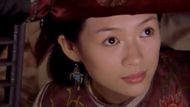
Ang Lee's Crouching Tiger, Hidden Dragon is visually marvelous and a martial arts movie beyond the genre in emotional depth and elegant choreography. It is set against a backdrop of 19th-century China, with the thread of a stolen sword uniting heroes' destinies and their unrequited loves. The sweeping scenes of action, with which it is so liberally including the spectacular use of wire-fu, are as breathtaking as any scene in the movie detailing loyalty, duty, or freedom. International success helped raise the profile of wuxia cinema worldwide.
18) Perfume: The Story of a Murderer

Tom Tykwer directed Perfume: The Story of a Murderer, an adaptation of Patrick Süskind's infamous novel tells the story of an extraordinary sense of smell about a man who becomes an obsessive capturer of scents from young women. The film is a cinematic sense-exploration of obsession, genius, and madness; mixing gothic horror with a philosophical rumination on identity and desire will distinguish it from the lot by dark tones, disturbing material, and simply extraordinary photography to the eyes.
19) In the Mood for Love

Wong Kar-wai's work in the film is a melancholic presentation of love and longing in 1960s Hong Kong. The film is about two neighbors who find out that their spouses are having an affair and slowly develop an emotional bond with each other, which they never consummate. Its gorgeous cinematography, haunting soundtrack, and subtle performances make it a poignant film about unfulfilled desires.
20) Pather Panchali

India Satyajit Ray's landmark film is an intimate and poignant portrayal of rural Indian life. It follows the early life of a small boy named Apu and his family as they face poverty and personal loss. Pather Panchali is often credited as one of the finest films ever made, not just because of its all-time themes but also for presenting Indian cinema to the world.
Love movies? Try our Box Office Game and Movie Grid Game to test your film knowledge and have some fun!
Your perspective matters!
Start the conversation
